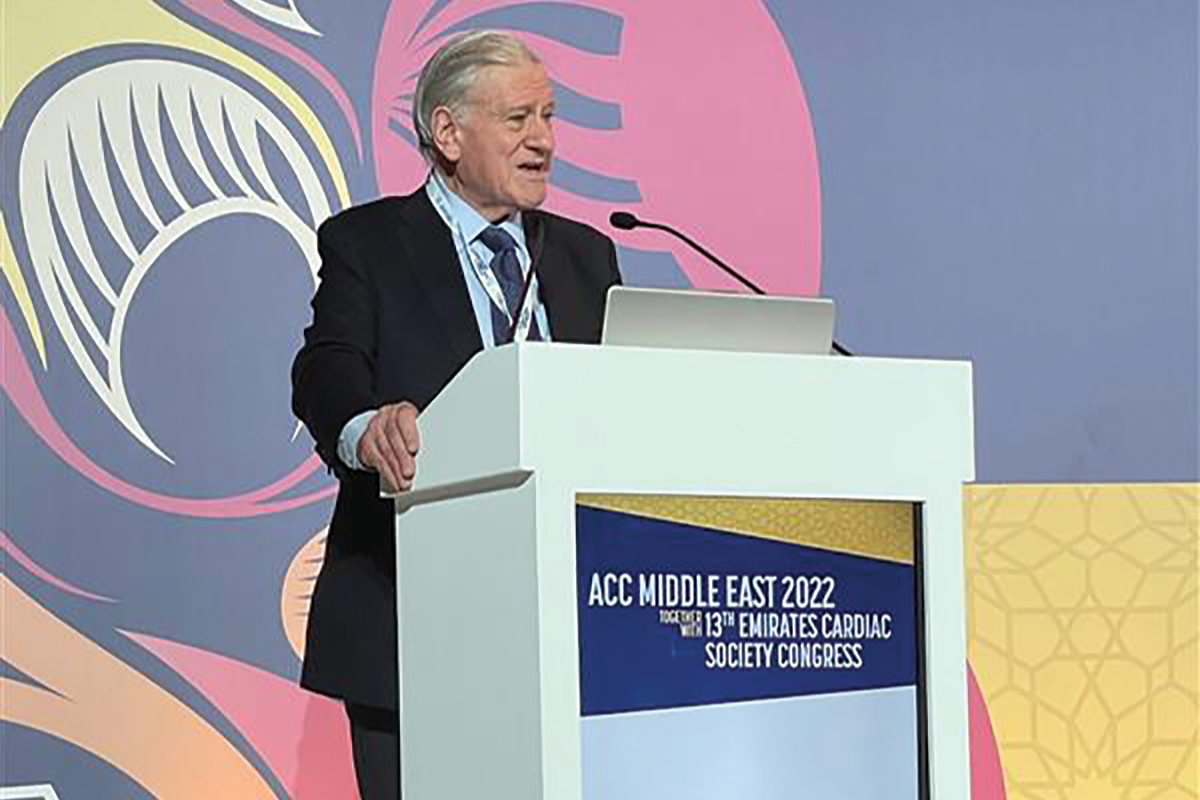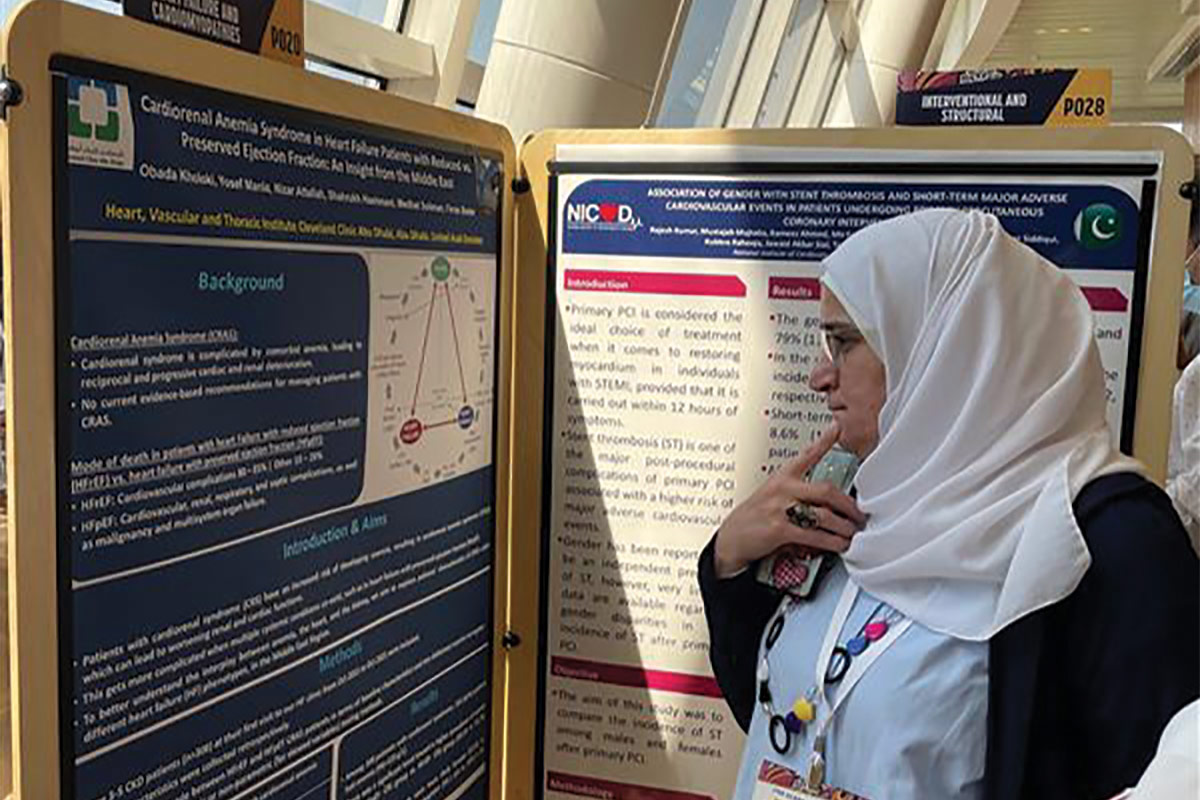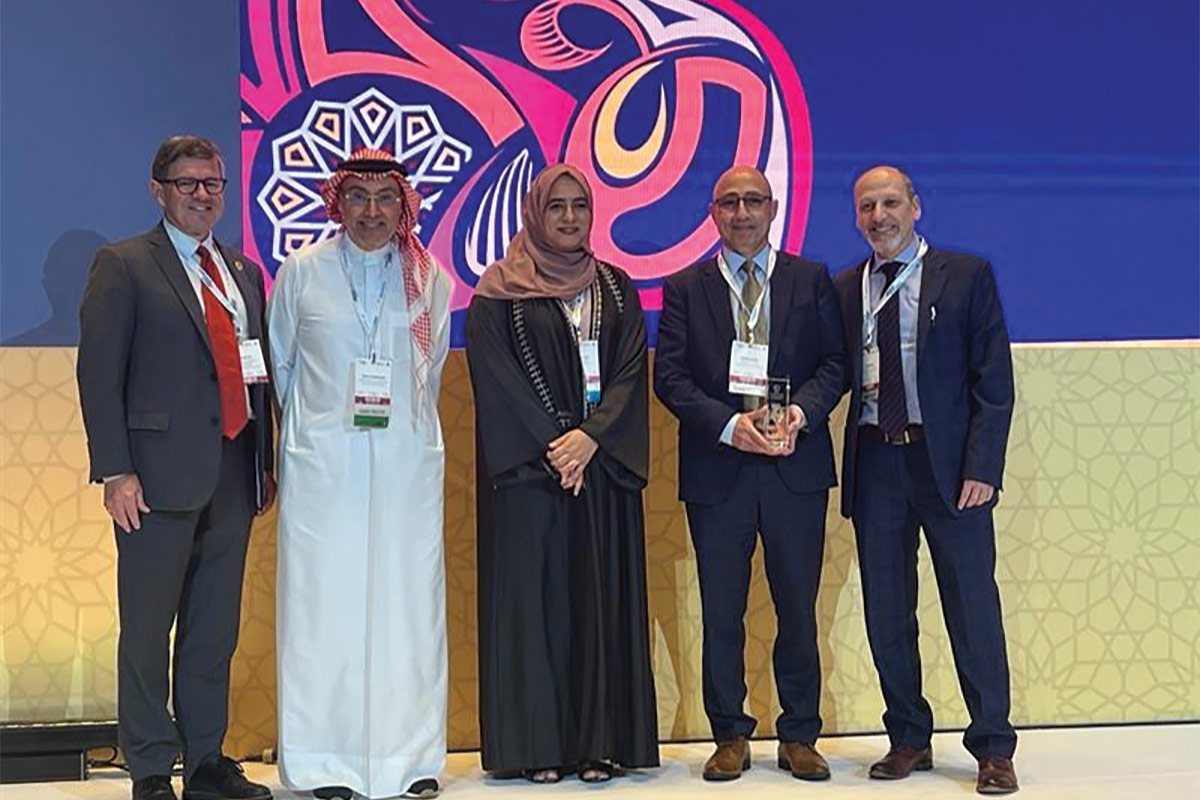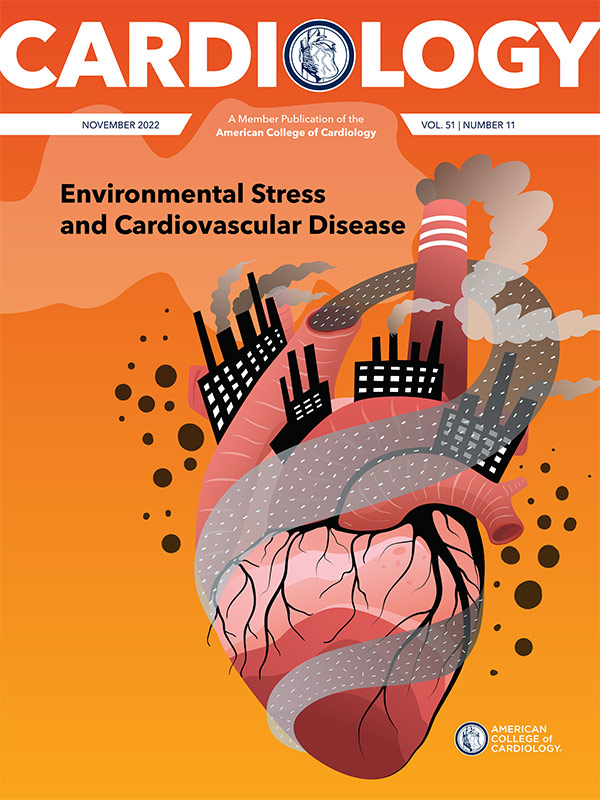The Pulse of ACC
Spotlighting Contemporary Best Practices For Transforming CV Care In the Middle East

The ACC and Emirates Cardiac Society hosted the ACC Middle East 2022 Together with the 13th Emirates Cardiac Society Congress in Dubai, United Arab Emirates, from Oct. 7 to 9. The annual conference brought together cardiac care teams in the Middle East region with global cardiovascular experts to examine emerging trends, evidence-based strategies and contemporary best practices for the prevention and management of cardiovascular disease.
Conference Vice Chairs Khaled M. Ziada, MD, FACC, and Wael A. Almahmeed, MD, FACC, crafted a comprehensive agenda featuring five tracks covering all the subspecialties of cardiology and including the latest in late-breaking science.
"The annual Emirates Cardiac Society congress is one of the biggest meetings in the region. We were proud to partner with the ACC for the third time to produce a state-of-the-art conference," said Almahmeed.
Valentin Fuster, MD, PhD, MACC, editor-in-chief of the Journal of the American College of Cardiology, kicked off the conference with a thought-provoking Opening Plenary Session on the "Role of Imagenomics in Enhancing Cardiovascular Health Throughout the Lifespan," while other plenaries throughout the course of the meeting addressed topics ranging from the top takeaways from recent ACC/AHA clinical guidelines for chest pain, coronary revascularization and heart failure, to artificial intelligence in cardiology.
Attendees also had access to an interactive learning lab, featuring a hands-on echo simulation, challenging clinical case discussions, Heart Songs 5, ECG Drill & Practice, and more. New science from countries throughout the Middle East was also presented, touching on topics like clinical outcomes in Middle Eastern women with atrial fibrillation compared with men; the impact of morning vs. evening dosing of antihypertensive drugs on blood pressure; ivabradine effects on COVID-19-induced postural orthostatic tachycardia syndrome; and more.
One study out of Iran addressed the relationship between different types of grain intake and premature coronary artery disease in the Middle East, with researchers finding a higher intake of refined grain was associated with an increased risk of premature coronary artery disease, while eating whole grains was associated with reduced risk. (Click here to read the press release.)
"As more studies demonstrate an increase in refined grains consumption globally, as well as the impact on overall health, it is important that we find ways to encourage and educate people on the benefits of whole grain consumption," said Mohammad Amin Khajavi Gaskarei, MD. "Tactics to consider include teaching improved dietary choices in schools and other public places in simple language the general population can understand, as well as on television programs and by continuing to do high level research that is presented at medical conferences and published in medical journals. Clinicians must also be having these conversations with each other and their patients."
Learn more about ACC Middle East 2022 Together with the 13th Emirates Cardiac Society Congress at ACC.org/MiddleEast2022.




Raising Awareness of SGLT2 Inhibitors
The ACC in collaboration with Boehringer Ingelheim and Eli Lilly and Company (Lilly) has announced plans for a comprehensive new initiative designed to educate cardiovascular clinicians on the role and use of SGLT2 inhibitors (SGLT2is) in managing patients with heart failure.
"The Heart Failure and SGLT2is: The New Pillar in Care" efforts, slated to launch later this year, will include a wide range of educational activities and resources, including case-based learning, podcasts, lectures and interactive lessons. Patient-directed materials, including articles, infographics and shared decision-making tools, will also be developed through ACC's CardioSmart initiative to help involve patients in decisions to include the drugs as part of their heart failure treatment plan.
"Heart failure was once a condition that was diagnosed in later stages, but we're now focused on early detection and prevention in addition to comprehensive guideline-directed treatments for those with the established diagnosis," said James L. Januzzi Jr, MD, FACC, co-chair of the ACC SGLT2i Heart Failure Education program and a member of the ACC Board of Trustees. "Treatments have dramatically evolved in the past few years, and it can take time for those treatments to make their way to daily practice. By educating clinicians on the guideline-directed benefits of SGLT2 inhibitors to keep HF patients healthier and out of the hospital, we're transforming cardiovascular care and improving heart health for a broader population of people than ever."
The 2022 AHA/ACC/HFSA Guideline for the Management of Heart Failure recommends SGLT2is as one of four medication classes for heart failure, including specifically for patients with type 2 diabetes and either established cardiovascular disease or at high cardiovascular risk, to prevent hospitalizations for heart failure.
"SGLT2 inhibitors are the latest addition to heart failure guideline-directed medical therapy and are recommended independent of diabetes status," said Jeff Emmick, MD, PhD, vice president, Product Development, Lilly. "The educational content in the ACC's new curriculum will help address some of the challenges in today's heart failure landscape, thereby offering the opportunity to provide better care and improve the lives of people who have heart failure."
CMP: Closing Out 2022; Get Ready For 2023
Two Performance Assessment Windows remain for 2022 as part of the Collaborative Maintenance Pathway (CMP). The second and final window for Interventional, Electrophysiology and Heart Failure, delivered through CathSAP, EP SAP and HF SAP, is scheduled for Nov. 12 to 20, while the second and final window for cardiovascular disease delivered through ACCSAP will take place Dec. 3 to 11.
Planning for 2023 is already underway, with clinicians able to enroll at any point, starting now. The CMP is an alternative Maintenance of Certification (MOC) assessment option that allows clinicians to stay 100% certified by focusing on just 20% of the field each year. Over a span of five years, the entire knowledge base is covered and participants have access to all the comprehensive educational material, annual updates and CME/MOC credit needed.

BOG Continues to Make "HERstory"
Congratulations to Himabindu Vidula, MD, MS, FACC, on being named incoming chair-elect of the ACC's Board of Governors. Vidula, who is the current ACC governor for New York (Upstate) will assume her role in March 2023 following ACC.23/WCC in New Orleans. She will serve as BOG Chair from 2024 to 2025, following Nicole L. Lohr, MD, PhD, FACC.
Vidula is the medical director of heart transplantation at the University of Rochester Medical Center, where she is associate professor of medicine in the Advanced Heart Failure Program. She is also the founder and cardiovascular director of the Comprehensive Sarcoidosis and Amyloidosis Programs. Vidula's research interests are related to telehealth and remote monitoring in patients with left ventricular assist devices.
She received her medical degree from Northwestern University and completed her residency, cardiovascular disease and advanced heart failure fellowships at Northwestern University. She is board certified in Internal Medicine, Cardiovascular Disease and Advanced Heart Failure and Transplantation.
Vidula joins the growing number of women leading the College's BOG. Current Chair Malissa J. Wood MD, FACC, will make BOG history this coming March as the first woman chair to pass the torch to another woman (Lohr).
Click here to read the recent Cardiology feature on women in the BOG.
Clinical Topics: Acute Coronary Syndromes, Diabetes and Cardiometabolic Disease, Heart Failure and Cardiomyopathies, Prevention, Acute Heart Failure
Keywords: ACC Publications, Cardiology Magazine, Cultural Diversity, Health Equity, Gender Equity, Social Inclusion, ACC International, Heart Failure, Acute Coronary Syndrome, Secondary Prevention, Metabolic Syndrome
< Back to Listings

